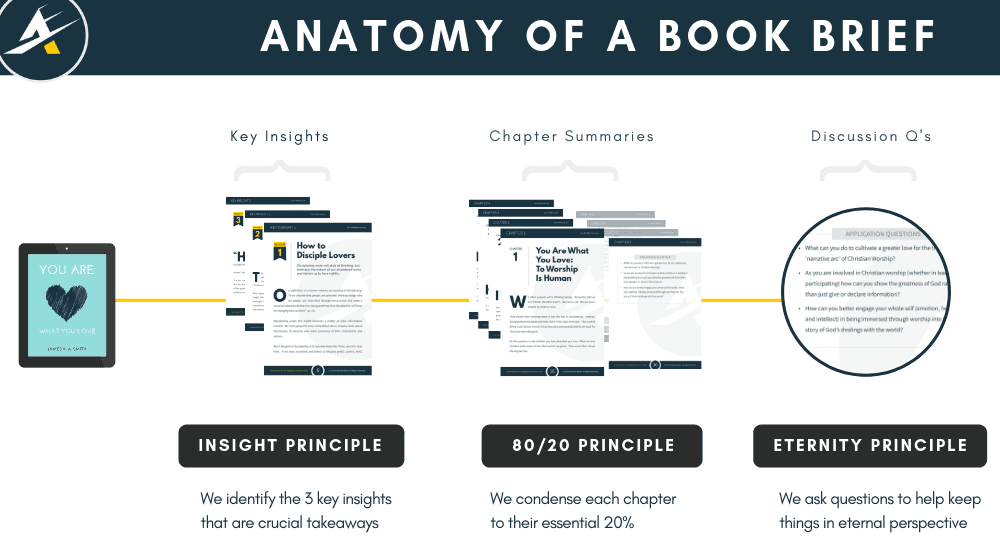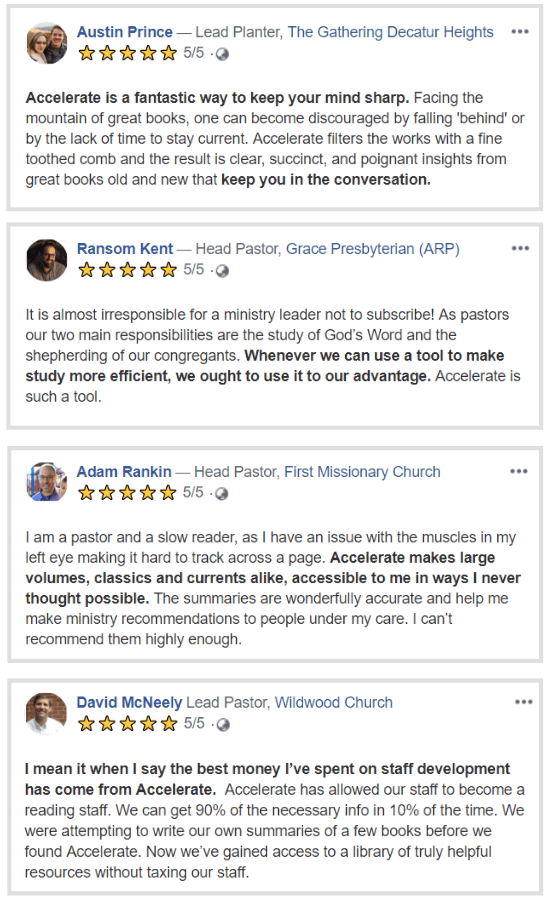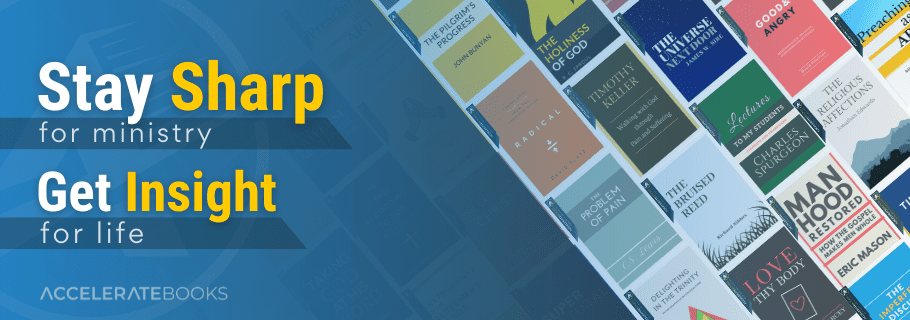This week the blog is sponsored by AccelerateBooks. Used by 5000+ leaders, AccelerateBooks keeps you sharp for ministry and life by giving you access to an arsenal of soul-shaping insights from the most important books. Get 33% off forever on all membership at https://partner.acceleratebooks.com/challies.
You’re probably too busy to read this.
You probably have 5 other browser tabs currently open, a lineup of articles bookmarked for later, and a growing stack of books you’ll read “one day”.
And you probably have a to-do list of all the other tasks you should be doing right now.
And that’s precisely why you should read this article.
How Many Books Should Leaders Read?
You’ve likely opened this article because, as a leader, you already know how important reading is; you already know how essential continued learning is for staying sharp and effective.
As Albert Mohler, president of SBTS, says:
There is no substitute for effective learning when it comes to developing and maintaining the intelligence necessary to lead.
Your brain is a powerful tool that must be sharpened and stewarded, otherwise, it will waste away.
And while you’re well aware of this, too often the urgent demands of life and ministry keep your hands tied and your books untouched. But your inner critic reprimands you: wake up earlier, skip breakfast, drink more caffeine, read faster!
You feel guilty when others seem to read more than you; you’re both inspired and devastated when you consider that:
- Timothy Keller reads 3 books a week
- Charles Spurgeon read 6 books a week
- D. A. Carson reads 9 books a week
- Albert Mohler reads 7-10 books a week (sources below)
At this point, you’re likely either inspired to try harder, set more ambitious goals, and eventually succumb to burnout. Or you’re left to wonder if it’s even possible to develop a sustainable habit of learning.
It is possible.
What if effective learning is not measured by how many books you read, but by how effectively you read?
In fact, with the right mindset and the right tools, it’s possible to learn more effectively in a single-year than most do in a lifetime.
In this article, you’ll discover the two principles needed to cultivate the right mindset and you’ll discover a tool that can change your life and ministry forever. (And there’s a free gift at the end you don’t want to miss!)
The Insight Principle
The Insight Principle states that the goal for reading is not reading for its own sake, but acquiring insight.
When you fall into the trap of equating reading with learning, you hinder your growth; when you prize ingesting information more than internalizing insight, you do yourself a disservice.
It is possible to read many books, but learn very little.
In fact, the truth is that “books don’t change people”, says John Piper. “Paragraphs change people and sometimes sentences. They may lodge themselves so powerfully in our mind that its effect is enormous when all else is forgotten.”
In other words, books don’t change people. Insights do.
Therefore, the goal of reading a book is never merely to finish it, but to identify, chew on, and absorb its life-shaping insights. If a book is not providing any insights that are helpful or stirring, it’s better to put it aside and invest your time elsewhere.
The 20% Principle
The second principle effective leaders must grasp is the 20% principle, also known as the Pareto principle or 80/20 rule.
Effective leaders recognize that not all books are created equal. With thousands of Christian books being published each year, you must exercise discernment and guard your time. Not only must you be wise in deciding which books you will read, but you also which books you won’t — this will mean deliberately avoiding good books, in order to make time for great books.
According to the 20% Principle, only 20% of the good books you come across will be worth your time given your particular calling and season in life.
Furthermore, the 20% Principle suggests that even within an individual book, only 20% of its pages hold the key insights, while the remaining 80% of the pages serve to illustrate and strengthen the author’s arguments.
As David Mathis states: “80% of a book’s main insights are found in 20% of the pages. So without apology, I ransack books for what I can get in the little time I have in this season of life.”
The Solution? The Book Brief Method
In light of these two principles, many leaders have discovered the advantage and effectiveness of using the Book Brief method for grasping, retaining, and implementing insights.
Book Briefs are strategic summaries designed to identify the key insights of a book, supported by key quotes and crystallized by reflection questions.

As illustrated above, the Book Brief method requires you to be incredibly intentional with your reading, keeping you focused on both identifying and applying the insights.
While you can absolutely use this method and create Book Briefs on your own, more than 5000 leaders currently use AccelerateBooks to access an entire library of existing Book Briefs, with 8 new Book Briefs added each month. Essentially, AccelerateBooks is an arsenal of Book Briefs, giving busy leaders (like you) access to important insights so you can stay sharp and effective in 2020. (You can download a free Book Brief at the end of this article!)
AccelerateBooks enables you to:
- Save Money by stewarding your finances more wisely with informed book-buying choices
- Stay Informed and dialed-in to ideas that are shaping the Church and culture
- Read Widely through weekly exposure to different perspectives
- Retain Insights with an accessible library of Book Briefs to reference
- … and much more!
Here’s what some Accelerate members have to say:

33% Off Forever on All Memberships
For readers of Challies.com, AccelerateBooks is happy to offer readers a 33% off discount on all membership plans (individual and group memberships).
To snag this deal, visit partner.acceleratebooks.com/challies.
P.S. – If you’re not quite convinced about the Book Brief method, feel free to check it out yourself with a Free Book Brief Download of Transforming Grace by Jerry Bridges.
P.P.S. – Check out this video to see how AccelerateBooks works!
Sources:
Timothy Keller reads 3 books a week
Charles Spurgeon read 6 books a week









